Website Temporary Closed
Sega Dreamcast
The Sega Dreamcast (Japanese: ドリームキャスト; code-named "Blackbelt", "Dural" and "Katana" during development) was Sega's last video game console.
When the time came to design the successor to the Sega Saturn, the new President of Sega, Shoichiro Irimajiri, took the unusual step of hiring an outsider. He hired Tatsuo Yamamoto from IBM Austin to head a skunkworks group to develop the next-generation console. However, it soon became apparent that the existing Japanese hardware group led by Hideki Sato did not want to relinquish control of hardware, and so there were two competing designs led by two different groups.
[collapse collapsed title=read more...]
The Japanese group led by Hideki Sato settled on an Hitachi SH4 processor with a PowerVR graphics processor developed by VideoLogic (now Imagination Technologies) and manufactured by NEC. This was originally codenamed "White Belt". The first Japanese prototype boards were silkscreened "Guppy" and the later ones "Katana".
The US skunkworks group (in a secret suite at the 303 Twin Dolphin Drive building) led by Tatsuo Yamamoto settled on an IBM/Motorola PowerPC 603e processor with a 3Dfx Voodoo 2 graphics processor, which was originally codenamed "Black Belt". The first US prototype boards were silkscreened "Shark" (in response to the Japanese "Guppy"). The Japanese hardware was codenamed "Dural", then later, Katana. This codename was only used by The US hardware team called themselves the "Black Belt team".
In July 1997, it was decided that the Japanese "Katana" would be the chosen format, renamed Dreamcast. In September 1997, 3Dfx filed a lawsuit against Sega and NEC (later including VideoLogic), claiming "breach of contract", although they later settled.
The Dreamcast was released on November 27, 1998 in Japan, on September 9, 1999 in the United States (the date 9/9/99 featured heavily in US promotion) and on October 14, 1999 in Europe. The tagline used to promote the console in the US was, "It's thinking", and in Europe "Up to 6 Billion Players". The vagueness of these campaigns and almost total lack of any in game footage has been touted as one of the reasons for the Dreamcast's eventual downfall. Many Americans knew that the Dreamcast was coming, but didn't know what one was.
The Dreamcast was the first console to include a built-in modem and Internet support for online gaming. It enjoyed brisk sales in its first season and was one of Sega's most successful hardware units. In the United States alone, a record 200,000 units had been pre-ordered before launch and Sega sold 500,000 consoles in just two weeks (including 225,000 sold on the first 24 hours which became a video game record until the PlayStation 2 launched a year later). In fact, due to brisk sales and hardware shortages, Sega was unable to fulfil all of the advance orders. Sega confirmed that it made $98.4 million on combined hardware and software sales with the Dreamcast with its September 9, 1999 launch. Sega even compared the record figure to the opening day gross of Star Wars Episode I: The Phantom Menace, which made $28.5 million during the first 24 hours in theatres.
Before the launch in the United States, Sega had already taken the extra step in displaying Dreamcast capabilities in stores nationwide. Much like the PlayStation's launch in North America, the displays of titles such as Soul Calibur, Sonic Adventure, Power Stone and Hydro Thunder helped the Dreamcast succeed in the first year. Although Electronic Arts declined to support the Dreamcast which included the omission of its popular sports games (due in part to EA's losses from the past Sega Saturn), Sega Sports titles helped to fill that void.
In April 1999, Sony announced its PlayStation 2, designed to be backwards-compatible with the older PlayStation, and released the unit in Japan in March 2000. Sony's press release, despite being a year ahead of the launch of the PS2, was enough to divert a lot of attention from Sega. Even though Sega touted the Dreamcast's online capabilities (the PS2 would not go online until late 2002), American public attention was focused upon the PlayStation 2's ability to play DVDs (the DVD format did not catch on in Japan until after the release of the PS2 as VCD/SVCD were established standards). Electronic Arts also announced its support for the PS2. This, combined with the fact that SEGA had dropped support for the Saturn and did not offer backwards compatibility led to poorer sales in America (Sega CD and 32X are good examples of this).
On January 31, 2001, Sega announced that production of Dreamcast hardware was to be discontinued by March of that year, although the 50 to 60 titles still in production would be published. The last North American release was NHL 2K2, which was released in February of 2002. With the company announcing no plans to develop a next-generation successor to the Dreamcast, this was Sega's last foray into the home console business. By the time Sega decided to cease development of the Dreamcast, about 10 million consoles had been sold. Though the Dreamcast was officially discontinued in early 2001, commercial games were still developed and released afterwards, particularly in Japan.
Many consider the critically acclaimed arcade shooter Ikaruga developed by Treasure to be the Dreamcast swan song. It was released in September 2002 in Japan only after a large amount of speculation on the game's fate; its US release was on the Nintendo GameCube in April 2003. Hacked unreleased games like Propeller Arena and Half-Life continued to become available to the public by program decoders like Echelon. On February 24, 2004, Sega released their final Dreamcast game, Puyo Pop Fever, although a small number of third-party games are still being released, such as Trizeal, released in April 2005, or the release of Rajirugi and soon-to-be-released Under Defeat.
Despite its short lifespan, the Dreamcast is still a very popular and highly-regarded console among many fans due to its impressive library of both mainstream and quirky titles. It is even starting to become a cult classic, as the system is getting harder to find (in fact, although the Dreamcast was officially discontinued in January 2001, Sega continued to produce the console for a short time afterwards due to rising demand, not least among collectors and hard-core fans).
[/collapse]
- HOME


- PRODUCTS

- 3DO
- Amiga CD32
- Amstrad GX4000
- Atari 2600
- Atari 7800
- Atari Jaguar
- Atari Jaguar CD
- Atari Lynx
- Bandai Wonderswan
- Coleco
- Colecovision
- Famicom
- Famicom Disk System
- Grandstand
- JAMMA
- Mattel Intellivision
- MB
- Microsoft Xbox
- MSX
- Neo Geo AES
- Neo Geo CD
- Neo Geo MVS
- Neo Geo Pocket
- Nintendo 64
- Nintendo Game and Watch
- Nintendo Gameboy
- Nintendo Gameboy Advance
- Nintendo Gameboy Colour
- Nintendo Gamecube
- Nintendo NES
- Nintendo Virtual Boy
- PC Engine
- PC Engine CD
- Philips CDI
- Sega 32X
- Sega Dreamcast
- Sega Game Gear
- Sega Genesis
- Sega Master System
- Sega Mega CD
- Sega Megadrive
- Sega Nomad
- Sega Saturn
- Sony Playstation
- Sony Playstation 2
- Super Famicom
- Super Nintendo
- Texas Instruments
- Tiger Game Com
- Tomy
- Vectrex
- Japanese Video Game Imports
-

- MODIFICATIONS

- Switchless Modification
- Modification Sega 32X
- Modification Sega Dreamcast
- Modification Sega Megadrive
- Modification Neo Geo AES
- Modification Neo Geo CD
- Modification Nintendo NES
- Modification Sega Master System
- Modification Sega Mega-CD
- Modification Sega Nomad
- Modification Sega Saturn
- Modification Super Nintendo
-

- TECHNICAL INFO


- NEWS


- ABOUT US


- MEMBERS


- CONTACT US


Log on
x
Just In!
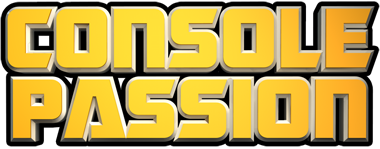
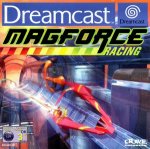
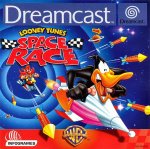
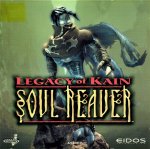
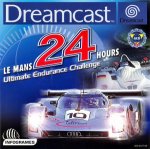
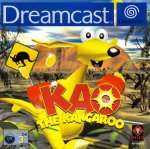
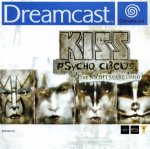
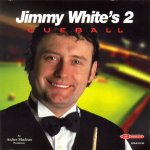
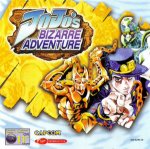
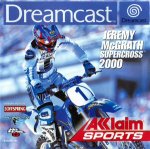
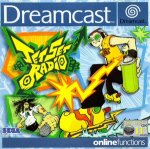

 Save time
Save time